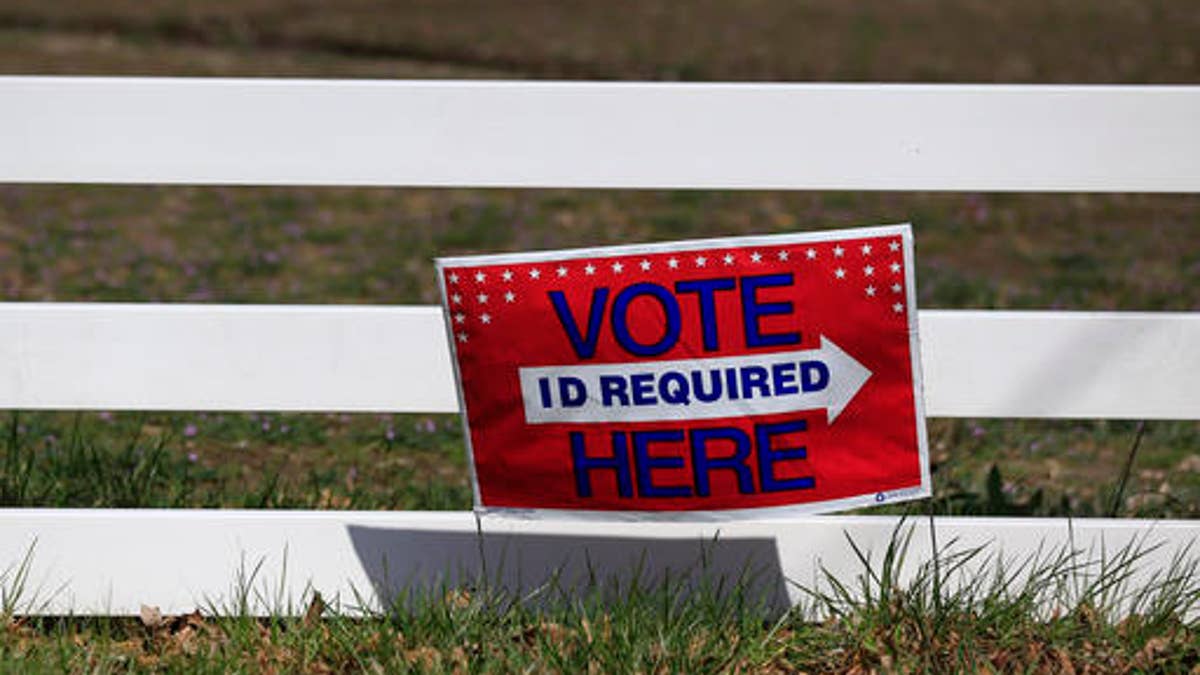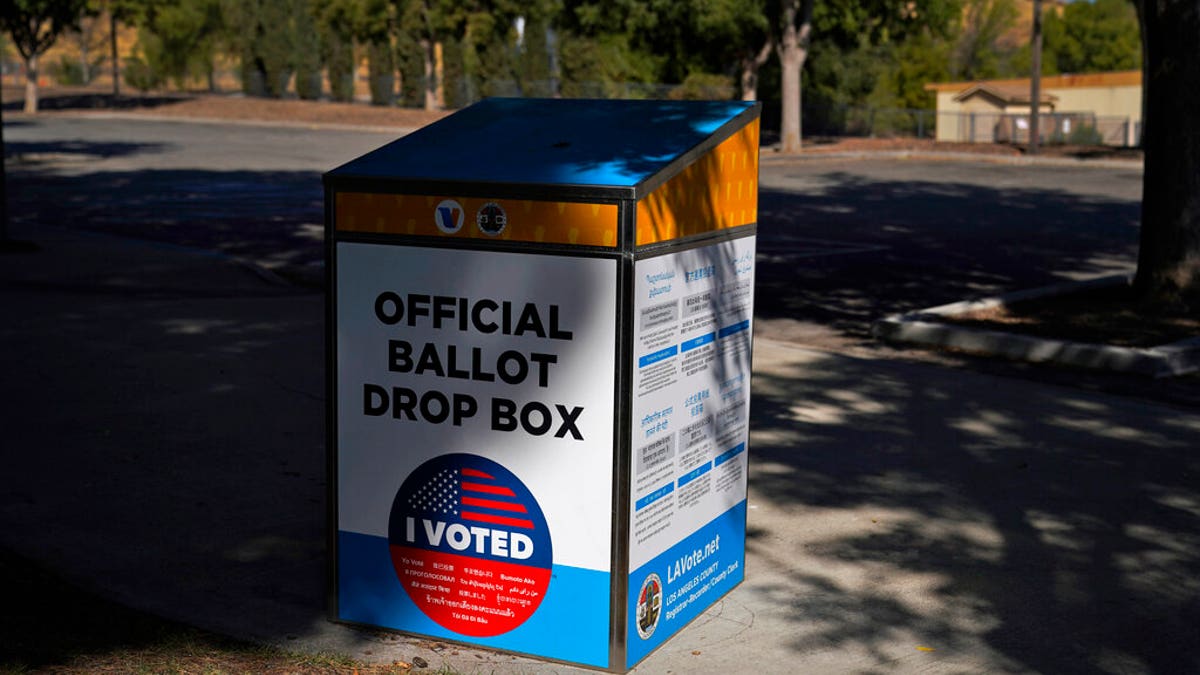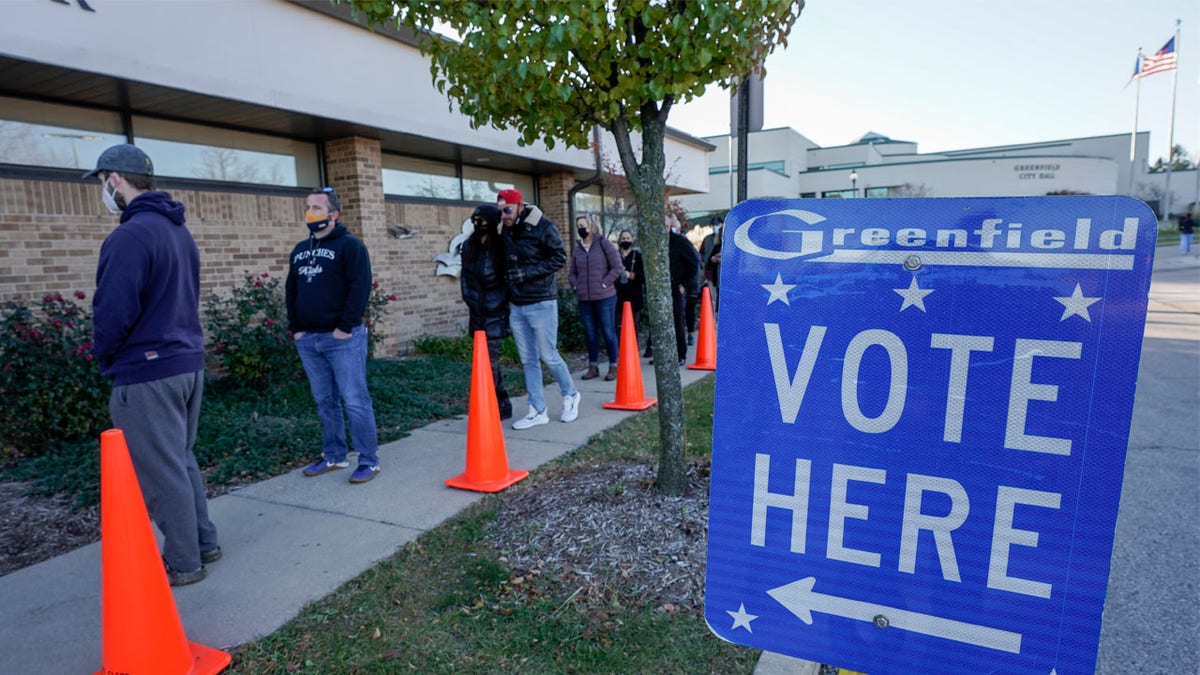Democrats plan to change filibuster provisions for voting rights legislation
Congressional correspondent Chad Pergram has the latest on the debate over the voting rights bill on 'America Reports.'
A Los Angeles Times column published Tuesday analyzed the concept of mandatory voting and suggested it would "strengthen Democracy and make America's politics less awful."
The column, written by Mark Z. Barabak, said that mandatory voting would mean "no lame excuses" and noted that two dozen different countries require and that the two proposing the idea, E.J. Dionne and Miles Rapoport, acknowledge that it "might be hard" for Americans to accept.

A sign directing voters is posted along a fence line at the Platte County Fair Grounds in Tracy, Missouri, on March 15, 2016. (AP Photo/Orlin Wagner)
Dionne, a senior fellow at the Brookings Institution and a Washington Post columnist, and Rapoport a liberal activist and former Secretary of State of Connecticut, wrote a book titled "100% Democracy, The Case for Universal Voting."
The two make their case that every "eligible" American should have to participate in elections "from the local level to the White House." They pitched they idea of mandatory voting to 25 students at the University of California-Berkeley.

An official ballot drop box is seen Oct. 14, 2020, in Santa Clarita, California. (AP Photo/Marcio Jose Sanchez)
"Increased polarization is one insidious consequence. Candidates would behave differently, Rapoport said, if they knew every eligible voter was going to participate in an election," Barabak wrote.
ARIZONA WILL REQUIRE VOTERS TO PROVE CITIZENSHIP AND RESIDENCY, ANGERING ACTIVISTS
Barabak also noted Rapoport's argument that candidates have to appeal to all voters, rather than just the candidate's base.
"Our view is that making voting a civic and legal duty is the best way to defend it as a right," Dionne said, according to Barabak. "Because as soon as you make voting a duty, like jury duty, that everyone has to engage in, it becomes incumbent on the entire political system to make it as easy as possible."

People line up to vote outside the Greenfield Community Center on Nov. 3, 2020, in Greenfield, Wisconsin. (AP Photo/Morry Gash)
They propose a $20 fine for Americans that do not cast a ballot, which they describe as "light touch enforcement."
"Elections would include a none-of-the-above option, sparing voters from having to choose one or another truly off-putting candidate," Barabak wrote.
CLICK HERE TO GET THE FOX NEWS APP
Some Senate Democrats proposed nuking the filibuster in an effort to pass two different voting laws in January. Republicans described the laws as a federal takeover of local elections and did not support either the Freedom To Vote Act or the John Lewis Voting Rights Amendment Act.
When Senate Majority Leader Chuck Schumer forced a vote on the filibuster, Sen. Joe Manchin, D-W.Va., along with Sen. Kyrsten Sinema, D-Ariz., voted against it, emphasizing that a party line vote to change the filibuster-vote threshold to 51 was going too far.





















